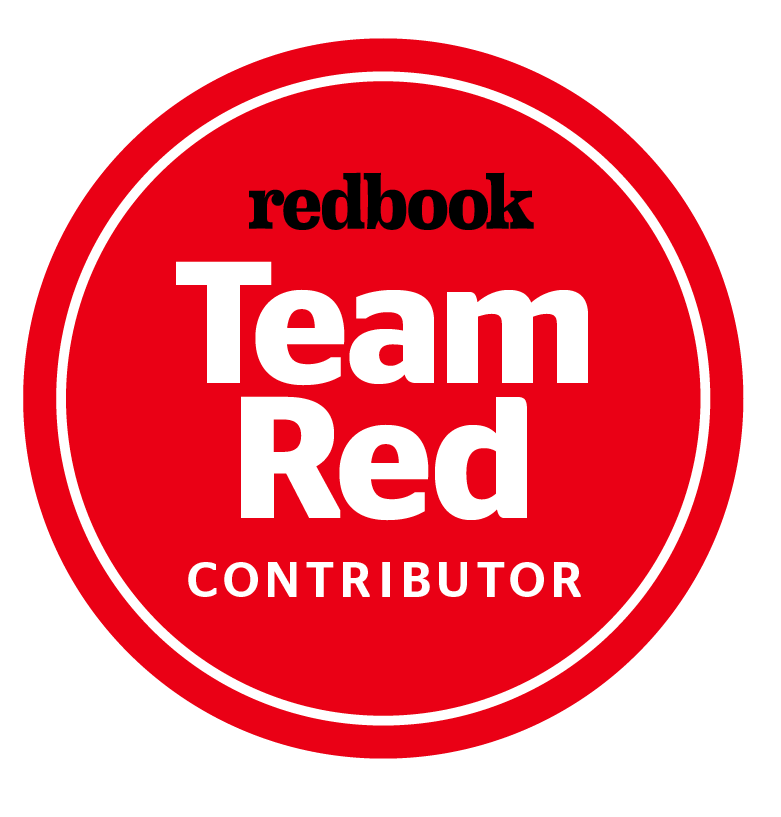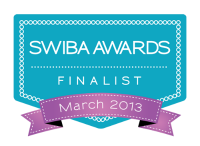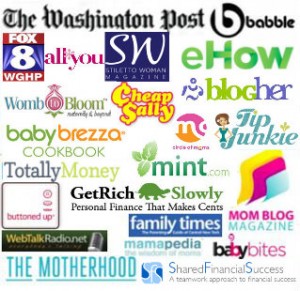I participated in a campaign on behalf of Mom Central Consulting for the Cord Blood Registry. I received promotional item to thank me for my participation.
When bringing a new one into the world there are a million things to consider. From nursery decorations, to breast or bottle, to swaddle or not to swaddle, and to bank cord blood or not. The last one I mentioned, to bank cord blood or not, doesn’t get discussed as much as other new mom issues but I think it’s an important one to be discussed.
If you’re a regular reader, you’re already aware that I’m having a baby next month, Lord willing. I mention it every other post, I don’t know how you could miss it. 🙂 That means it’s time for my husband and I to set down and decide whether or not we’re going to set aside the cord blood for later use in our family or if we’re going to donate it.
I’m embarrassed to say that I wasn’t as familiar with cord blood banking when I had my daughter. We looked at the price tag {which was hefty} and chose not to save it but I assumed the hospital would save it and donate it on our behalf for public use. This is a precious commodity and it never crossed my mind that it would just be thrown away. This time we’re either going to make the plans ahead of time to donate it or to keep for us. There won’t be any waste this time!
Before I go into the details of what cord blood banking is for those who don’t know I have to tell you that the hefty price I mentioned earlier has gone down quite a bit. It’s now around $1,700 {with a $130 yearly banking fee} as opposed to the $5,000 it was when my daughter was born. $2,000 is still nothing to sneeze at but hopefully this drop in price will help make it more affordable for families to take advantage of. Donating cord blood is completely free though!
Through the Newborn Possibilities Program, Cord Blood Registry offers free cord blood and cord tissue processing with five years of storage to families with a medical need so that they may use the newborn stem cells now or in the near future. To date, the Newborn Possibilities Program has processed and saved stem cells for nearly 5,000 children.
What’s the Big Deal?
Stem cells are immature cells that have the ability to become other kinds of cells that form organs and tissues. They are powerful, unique cells that are the building blocks of the body.
After a baby is born and the umbilical cord has been clamped and cut, some blood remains in the blood vessels of the placenta and the attached portion of the umbilical cord. This cord blood is rich in powerful hematopoietic (blood-forming) stem cells.
Cord blood stem cells have been used in the treatment of more than 80 conditions and are currently being evaluated in FDA-regulated clinical trials for their potential regenerative ability in common health issues including autism, cerebral palsy, pediatric stroke and traumatic brain injury.
Who “Banks” the Blood?
The Cord Blood Registry (CBR) is the world’s largest family cord blood bank and the first and only newborn stem cell bank to pioneer FDA-regulated clinical trials with leading medical centers.
Is Cord Blood Banking Right for You?
Here are some things to read over to see if this may be right for your family.
- – Consider the future: Regenerative medicine is a new approach to treatment focused on promoting normal function in the human body through cell based therapies in which stem cells play a vital role. In fact, many believe that regenerative medicine will revolutionize healthcare. Emerging research suggest that stem cells from cord blood have advantages over other stem cell sources in regenerative therapies. The clinical use of stem cells has grown each year, increasing the likelihood that you or a member of your family could benefit from the newborn stem cells you bank.
- – Know your family history: Does your family have a history of illnesses for which newborn stem cells are currently being used or studied? If so, you may well benefit from banking cord blood for the conditions treated today, but importantly, for conditions that are currently being studied through clinical research.
- – Know your options: The primary options for cord blood banking are to store your stem cells with a family bank or to donate to a public bank. Family banking offers storage of cord blood stem cells for the family’s exclusive use. This costs a one time processing fee and an annual storage fee. Free banking is available for families with a medical need. Public donation allows you to donate stem cells to help someone in need. Later down the road you may be able to access your donation if you need it but there’s no guarantee that your donation will be available for you.
- – Talk to your doctor: If you think cord blood banking is something you’d like to do, it is important to discuss it with your physician. They’ll help you sort through your options and will also work with you and the hospital to ensure you have what is needed at the time of delivery for a smooth collection.
Right after birth is the only time to gather this potentially life-saving blood. Choosing to bank or not is a huge decision so I urge you, if you’re considering CBR, to take your time and read over all the facts that way you and your family can make the best decision for your family. To check out more information, visit CordBlood.com.
















I know this can be a really important treatment. I knew it was expensive, but I didn’t realize just how much. Thanks for the info, it’s important stuff to know!!
What a huge decision to make!!! This post was very education to me… just one more piece of the baby puzzle!!
I’m so glad to hear that the prices are going down. I have wanted to do this, but I also like delayed cutting of the cord.. so I haven’t yet.
we would gladly have donated ours for research but that wasnt’ an option for us
Thanks for all of this great information! I really wanted to do this with my twins but my OB said it didn’t work well with twins.
Wow, those prices really have come down! So much to think about these days when having a new little one!
I’m glad to hear the price has gone down. I hope it continues to go down. It’s still out of my budget but I like the idea that you can donate it too.
I agree, very cool that you can donate the cord blood!
Thank you for the info. I was not aware of how cord blood banking worked.
That is great that this service is becoming more affordable.
It’s something I never really thought of when our daughter was born. There will be no more children in our future, but I’ll remember to bring it up with friends and family when they’re expecting.
Thank you for sharing. I didn’t really know anything about this before your post.
I be there are a lot of expecting parents who don’t know about this option. This is such an informative post.
I’ve never used cord blood banking, but am considering the option should we be blessed with another child.
We did cord blood banking! It is very important to us!
Thanks for all the information. I remember discussing this with my husband.
I wish I had done cord blood banking.I think it is important.
I didn’t do this with any of my kids, but always wished that I did.
I haven’t had a child in many years and I am not sure I had heard of this until recently, but I really hope the price continues to come down so more families can do it.
Thanks for sharing this information. I wish I had known more info.
Great info. I think we would definitely do something like this should I ever get pregnant.
I didn’t really know about this when I had my children. This is such a great benefit to have for your child(ren) should the need arise.
I so wish I’d had the opportunity to save my son’s cord blood when he was born.